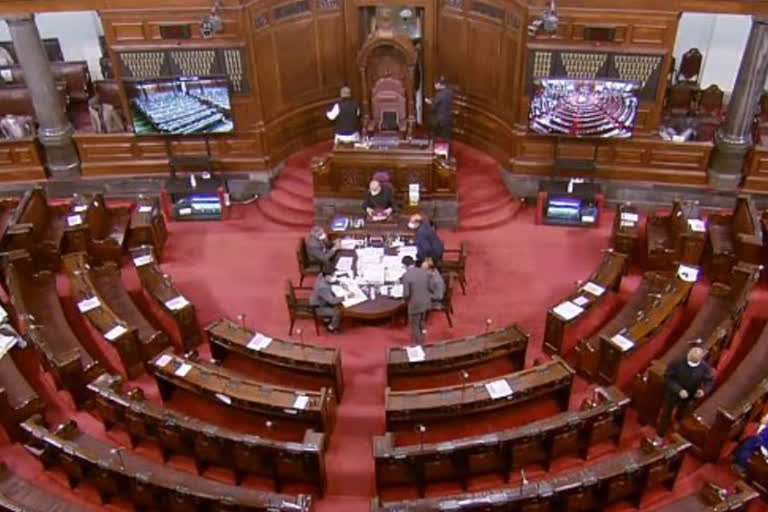New Delhi: The Union Law Minister, Kiren Rijju, informed the Parliament on Friday, that there has been no decision taken on the implementation of the Uniform Civil Code as of now as the matter is pending before the Supreme Court. He was giving a reply to the question raised in Parliament asking if the government proposes to bring a bill to implement the Uniform Civil Code.
He was also asked if the government has taken any steps to ensure gender and religion-neutral uniform laws on grounds of succession and inheritance and if it is aware of the UCC proposals of different states.
The Ministry of Law and Justice replied that there are legal interventions to ensure gender and religion-neutral uniform laws and the states are also empowered to legislate them. It further informed that the 21st Law Commission had examined UCC and had uploaded "Reform of Family law" on its portal to invite further discussions.
Uniform Civil Code comes under the directive principle of Article 44 of the constitution which calls for uniform personal laws on marriage, divorce, adoption, inheritance, etc. Currently, there are various laws for different communities like Hindu Marriage Act, Hindu Succession Act, Parsi Marriage and Divorce Act, etc. Directive Principles are not enforceable but they were included in the constitution with the intent of making laws on them at the right time.
Also Read: Lok Sabha passes Indian Antarctic Bill amid protests on price rise
The top court has dealt with the issue of UCC in various instances. It first emphasised the need for it in the Shah Bano case back in 1985. It had been observed back then that "it is a matter of regret that Article 44 has remained a dead letter".
"No community is likely to help the cat by making gratuitous concessions on this issue. It is for the state, which is charged with the duty of securing a uniform civil code and it has legislative competence to do so," the court had observed.
In one of the cases, it had also asked the Centre to look into the issue but later on had clarified that no directions were issued by it to the government regarding the enactment. Again when in 2015, a Christian couple went to SC for a divorce matter, and the court observed that there was complete confusion.
The apex court did time and again expressed its inclination toward enacting UCC but did not pass any directions as it considered it to be a matter of policy-making that should be enacted by the government. In the latest development regarding UCC in SC, the court has at least 5 PILs relating to various issues because of no UCC and it has sought the Centre's response over some PILs.



